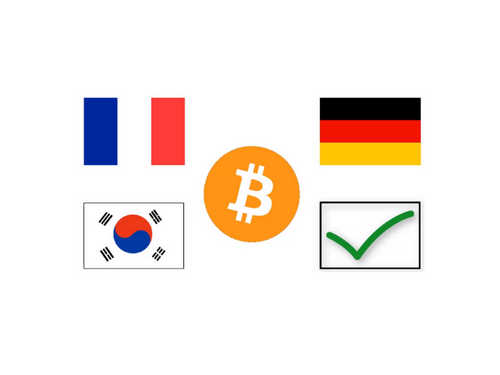Rami Mohammad Ali, a bitcoin miner and trader based in the Palestinian area of East Jerusalem, said the sell side of the local peer-to-peer market dried up and the buy side exploded in March.
Although it’s difficult to quantify demand for bitcoin (BTC) in informal markets across the Middle East, small-scale traders from Lebanon to Yemen say interest in bitcoin as a safe-haven asset, not a speculative asset, is stronger than ever.
So far, he’s sold a cumulative total of 30 bitcoin to 90 customers. That’s a significant increase from September 2019, when he said he sold roughly 20 bitcoin a month to 50 customers.
The appeal of holding value in bitcoin, he said, is that people can access “the money any time they need it.”
This appears to be true across the region. One anonymous Syrian trader with family in Lebanon said small Lebanese business owners are struggling to pay their invoices abroad. So, among the few Lebanese with family abroad and the necessary computer skills, some now “buy bitcoin locally with cash and liquidate it abroad through friends and family to pay their invoices.”
In fact, some Middle Eastern bitcoin traders reported relative newbies are learning quickly and looking to buy bitcoin this week, as global prices dip.

Meanwhile, in Tehran, an anonymous Iranian bitcoiner said people now “tend to keep their assets in gold, dollars and housing, plus a little bitcoin.” Due to the coronavirus outbreak in Iran, the economic situation has gotten progressively worse. This means fewer public bitcoin meetups and quieter trades among a population with even less faith in national institutions. Small-scale bitcoin mining is now commonplace, locals say, despite the challenges faced by industrial operations.
“Bitcoin is a revolutionary product but it needs a few more revolutions”, the Tehran-based bitcoiner said. “In the past, people thought bitcoin was a new type of scam. Now bitcoin is more trusted.”
The analytics firm Gate Trade estimated there are now more than 30 Iranian companies using bitcoin, instead of fiat, for cross-border deals. But a Gate Trade spokesperson declined to specify which companies because the greatest barrier to bitcoin adoption in the Middle East appears to be international sanctions. That challenge isn’t limited to Iran.
Yemeni bitcoin trader Mohammed Alsobhi said roughly five civilians continue to buy a small amount of bitcoin each month. The bitcoin market in Yemen is much smaller and quieter than most in the region due to the widespread censorship of telecommunication networks. But there is interest among locals knowledgeable about computer science.
«If I had the capabilities available in developed countries, I would have made great progress in this field,» Alsobhi said of selling bitcoin in his war-torn nation. «Most companies that deal globally … are excluding Yemen.»
He said he hopes people in Yemen will gain access to crypto markets for trading opportunities. But, he added, war is the biggest barrier to bitcoin adoption in his country because of sanctions. For example, due to compliance concerns, he said people in Yemen cannot download wallets via Google Play.
Crypto-curious civilians are barred from the system as the sanction’s collateral damage.
Sanctions’ impact
Yemen offers a microcosm of the global challenges civilians face using decentralized monetary networks.
Stepping back, a currency war emerged from Yemen’s civil war between Iran-backed Houthi rebels, which conquered the former capital city of Sana’a, and the Saudi-aligned Central Bank of Yemen, now in Aden. Yemenites don’t trust either side. Yemeni activist Tawakkol Karman recently accused President Abd Rabbuh Mansur Hadi of being just another pawn under “the Saudi occupation.”
As such, sanctions have ripple effects for civilians trapped between failing banks and warring parties. Yemen’s United Nations representative, Abdullah Al-Saadi, accused the Houthi militants of consorting with the ultimate target of U.S. sanctions, the armed forces of Iran.
“The militias continue to welcome Iranian experts and receive military support and weapons from Iran”, Al-Saadi said in a U.N. Security Council meeting in February.
With widespread reports of Houthi looting and the ongoing humanitarian crisis, the idea of digital cash appeals to some tech-savvy Yemenites in urban areas.
“Most of the population of Yemen is in Houthi-controlled areas, and are engaged in the bulk of economic activity in the country”, said Hassan Al-Haifi, an ex-banker based in Sana’a. “Cryptocurrency or e-money could help Yemenites under a formidable siege and blockade. … Sana’a would be favorable to a more autonomous currency regime.”
Ben Freeman, a former Goldman Sachs oil trader and CEO of Creo Commodities, said cryptocurrency’s value in the region relies on being decentralized and censorship-resistant. He doesn’t believe bitcoin’s current volatility has any impact on that value proposition, especially in light of the risk Yemen’s civil war presents for Saudi Arabian oil production.
“Extreme market sell-offs generally hit most asset classes as assets are sold to generate collateral for losing positions”, Freeman said. “If institutions break down, and bitcoin is independent to any institution or government oversight, then we’ll start to see more flight to bitcoin as an asset class.”
The hurdles preventing local adoption in the Middle East aren’t the lack of opportunity or demand; they are primarily the byproduct of political conditions. In Yemen and Iran, bitcoiners may need to avoid both domestic and international compliance risks. Most fintech companies overlook Lebanon and the Palestinian territories, even without sanctions. As such, there are few comprehensive or clear datasets related to usage beyond global (and heavily regulated) crypto exchanges.
This makes local markets hard to quantify. Still, it doesn’t appear that broader market dips reduced demand on the ground for over-the-counter (OTC) trades. Institutional players fleeing bitcoin have little impact on demand from grassroots Middle Eastern networks. To the contrary, lower prices present an opportunity for buyers in emerging markets.
“Bitcoin transactions in Iran increased in 2020, compared to previous years”, the Tehran-based bitcoiner said. “But the slope seems gentle.”


